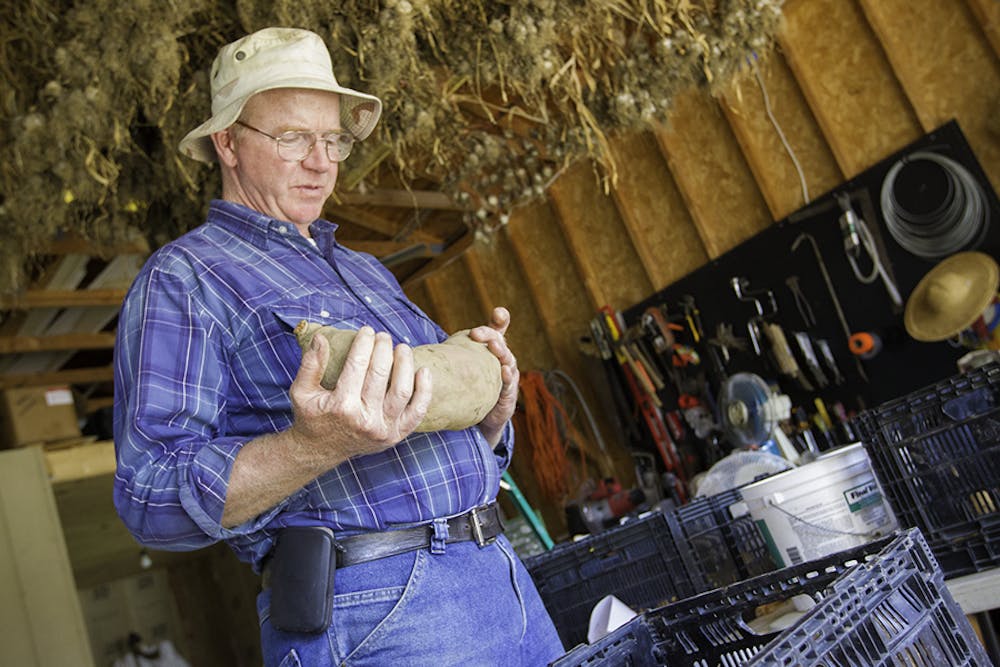Dry and hot. The New York Times called it the "most widespread (drought) in more than half a century" and the National Oceanic and Atmospheric Administration declared it was the hottest summer ever recorded in the U.S.
It seems pretty impossible to find conditions less ideal for farming. But while so many farmers were biting their nails, worrying about how badly their crops would be ravaged with dehydration, workers at Victory Acres, Upland's community organic farm, joked that the drought was helpful.
"Drought actually was good for us," said Leslie Gottschalk, agriculture coach at Victory Acres. "Our soil holds moisture for a long time, so a lot of rain makes it hard for roots to really develop and grow. They kind of rot there."
The workers of Victory Acres attribute the soil's ability to hold water to the way they work to keep it healthy. Being an organic farm, Victory Acres strives for the sustainability of soil.
They do so in several ways such as implementing cover crops, also known as green manures, which cuts down weed growth and increases organic material in the soil simultaneously.
Victory Acres also uses its animals to fertilize the soil and let "nature have its best," as Farm Manager at Victory Acres Terry Himelick put it.
Gottschalk, who is also a masters of environmental science candidate for the earth and environmental science department at Taylor, said Victory Acres fared far better than the local industrial farms.
[grandbanner xml=victory-acres]
One reason the crops stayed safe was the way the fields were watered using drip irrigation. This method of irrigation involves using long strips of flat hoses, or drip tapes, with holes to let the water leak out. This allows the water to work its way slowly into the earth and travel to the roots of the plants.
"We irrigate in a very water-efficient way," Gottschalk said. "We have very little evaporation unlike the spraying they do in the big ag fields. So much water is lost in evaporation that it's not very efficient."
Himelick said the yield was not as bountiful as it would have been with more rain.
"Drip tapes sustain the stuff," Himelick said, "but it doesn't make it what you'd call 'super-yield.' Rain and natural water are a whole lot better."
But he maintained that Victory Acres certainly didn't have a bad year.
How big of an effect of the drought will have on the entire community, Himelick says, is difficult to estimate. He is sure, however, that a rise in prices will take its toll, both on farmers and the general public.
"The worst part," Himelick said, "is that every time a farmer gets a bigger price, everybody else starts taking the gouge even more. Oil prices and everything else goes up, and the farmers still don't make anything. Their insurance goes up and equipment prices goes up. They're subsisting."
Even Victory Acres has been hit by this price raise. The price of the grain Himelick buys to feed the animals has more than doubled.
"I was looking at like $6 a bag, and now I'm paying $13 a bag," Himelick said.
The drought may not have dried out Victory Acres' crops, but it might clean out its pockets.




